Peace is the absence of chaos and fear. As we constantly race and stumble our way to the finish line, we often forget how inner peace truly is for balance and ultimate happiness. But how to find inner peace?
Although all of us love the idea of having peace of mind, we rarely do anything to achieve it. Before we get into how to achieve inner peace, let’s understand what it means.
What does inner peace mean?
When it comes to mind and peace, inner tranquility is a state where you feel relaxed, calm, and happy. It is an internalized psychological and spiritual state where you experience calmness and control of yourself even when stressors are present. It is how we cope with life’s challenges and overcome stress, sadness, anxiety, suffering, and uncertainty to experience bliss, happiness, and contentment.
Inner peace is the point when you can calm the noise inside your head and observe your thoughts and emotions without getting attached to them.
It is like looking at the world through our inner spiritual eyes and realizing that we don’t need to be affected by the stress and anxiety of daily life. How to find spiritual peace?
Peace of mind allows us to cope with physical and mental health issues, pick ourselves up when we fall down, and move towards bliss and spirituality.
Finding peace within yourself helps you detach from your chaotic self, step out of your own self-imposed prison of stress and worry, and find peace.
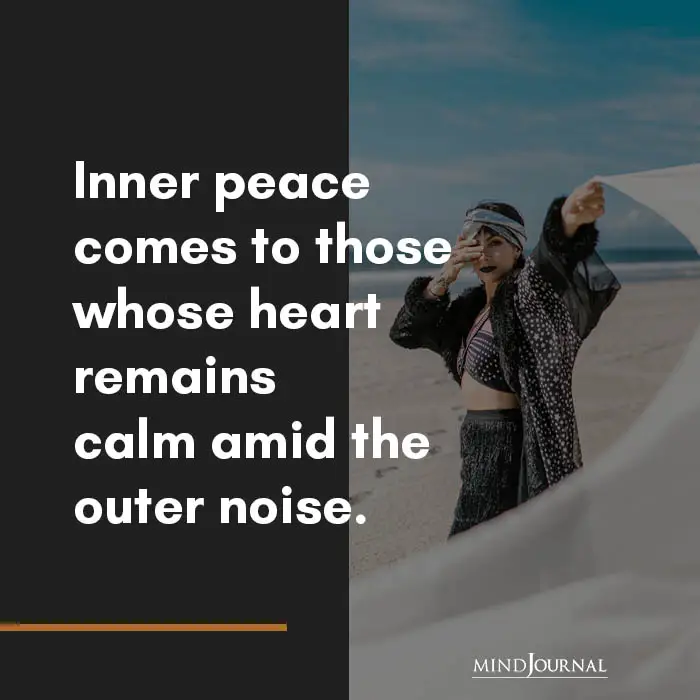
Inner peace is characterized by –
- Being calm, quiet, and peaceful, mentally and spiritually
- Not getting affected by negative thoughts, difficult emotions and worries
- Ability to connect with inner self and experience happiness & contentment
- Being your authentic self and having clarity of mind
- Letting go of daily stress and anxiety
- Practicing unconditional acceptance of everything in life, while acting to improve life
How to find internal peace? What you need to remember is: This mental and spiritual state of calm is not reliant on the absence of problems or conflict, but rather on our own ability to find peace and calmness within ourselves at the most chaotic moments. And this is why we all need inner peace. But, how to gain inner peace?
Related: How Our Brains Can Find Peace in a Crisis
How to find inner peace?
Are you wondering “How do I find inner peace?” Peace already exists within all of us. Let’s get deeper into the concept of peace and mind and finding peace in the midst of external chaos.
Inner peace is a part of our inner self. But as we are focused on searching for peace on the outside instead of looking inside. We keep looking around and keep struggling and stumbling through our lives, even though we possess the gem of peace within us.
The truth is, we don’t need to “find” inner peace, we simply need to be aware of this calmness within us and learn how to strengthen this ability.
You don’t need to go to an expensive retreat or to the Himalayas to look for it. You simply need to pause, breathe, and look within.
Unfortunately, with our chaotic lifestyle and constantly busy schedules, we forget what lies inside us and drown in stress, anxiety, and fear.
How do you find inner peace in your daily life?
1. Accept life as it is
Inner peace starts with being comfortable with who you are. Accepting yourself and letting go of what you cannot control is the key to defeating stress, anxiety, and depression. When you accept what is, you stop struggling, suffering, and resisting your reality. You learn to move forward instead of being stuck in resistance. Letting go allows you to be more energetic & creative and helps you find solutions.
Accept that life is riddled with challenges and obstacles, that you will make mistakes and fail numerous times, that you will learn new ways to deal with problems, and that there are no guarantees in life. Accept your own weaknesses and accept others unconditionally. Breathe deeply and let go of your need to control other people and situations. By resisting our reality, we only create more suffering for ourselves. However, by observing life from a detached perspective, we allow solutions to find us instead of desperately looking for them.
2. Don’t dwell on your past
All of us have certain past memories that can be embarrassing, upsetting, or even downright traumatizing. But if we allow our past to define who we are, then we will be stuck in that old version of ourselves. If you live in your past inside your mind, then you will give your memories the power to hold you back from being a better person. Constantly ruminating about the past can also cause stress, hopelessness, and depression.
However, when you refuse to hold on to your past regrets and mistakes, you create space for inner peace and happiness in your mind, heart, and soul. Understand that you are not your past. Simply because things have been a certain way till now, does not mean it will define your future. When you realize that your past mistakes make you grow as a person, you let them go and move forward.
Related: How To Achieve Peace Of Mind When Life Is So Uncertain
3. Spend time in nature
Human beings are not designed to stay cooped up in their apartments or office spaces. We are created as natural creatures – to experience sun, rain, and wind, to enjoy the cool breeze of the wind, to soothe in the shade of the trees, and to connect with other animals. This is why it is important to spend some time in nature to experience the psychological and spiritual state of calmness. Recent research shows that human-nature interactions can help to reduce stress and mental health strain.
Studies also reveal that nature experiences can have significant benefits to our health and well-being. So if you want to experience more peace and bliss in your life, spend some time in nature by going for a walk in the park, taking a weekend camping trip, or going for a vacation. However, this needs to be a lifelong practice more than a quick-fix or a short-term strategy.
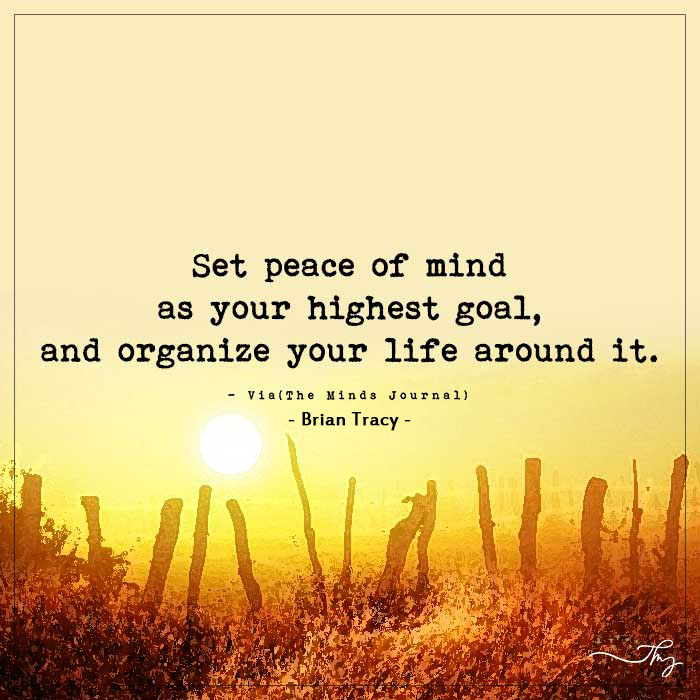
4. Practice mindfulness meditation
Meditation is another name for peacefulness. Mindfulness meditation is a simple yet effective ancient practice that helps us connect with our true selves by taking us inwards. This is the path to our inner peace, however, it may take a little practice and effort to reach our destination. Apart from the proven physical and mental health benefits, it can also be beneficial for our spiritual self as well. A simple 10-15-minute mindfulness meditation practice on a daily basis can help you find peace and calmness, regardless of the situation.
Studies have found that mindfulness meditation can help to improve our peace of mind as “mindfulness training teaches ‘reperceiving’, the ability to step away from the contents of consciousness and view one’s moment-by-moment experience with greater clarity and objectivity.” Meditation empowers us to stop and pause in the moment of distress, detach ourselves from our suffering, and guide our minds to focus more on the positive than the negative.
Related: Why You Should Give Meditation a Try- Know the benefits
5. Prioritize self-care
Loving and caring for yourself is a crucial aspect of finding inner happiness and peace. Unless you learn to love yourself, you will always struggle with accepting who you are. You will always feel insecure about your flaws and imperfections. By caring for your physical, mental, emotional, and spiritual well-being, you will be able to build a stronger relationship with yourself. Practicing self-care will empower you to be empathetic and compassionate towards yourself and others.
“Peace within self or an inner calmness may be created and sustained by caring for self at a deep level, committing to an inner journey, and by dedication to maintaining a practice of self-care,” explains a 2013 study. Self-care includes practices like acknowledging your emotions, eating nutritious foods, getting enough sleep, exercising regularly, having a work-life balance, avoiding drugs and alcohol, etc. It is only by feeling good about yourself you can feel truly peaceful and content.
6. Practice gratitude
If peace of mind is your destination, then your path will lead through gratefulness. Being grateful for what we have instead of pining over what we don’t have enables us to feel satisfied and content from within. Scientific evidence reveals that there is a connection between gratitude and well-being. Individuals who practice gratitude have a higher chance of being optimistic in life and being happier.
Grateful people tend to focus more on finding solutions than worrying about problems, which makes them more capable of overcoming life’s challenges. According to one 2016 study, gratitude and inner peace are interconnected and are our natural and authentic state. The study found that keeping gratitude journals can be highly beneficial for improving mood and productivity. “Simply entering an entry a day of something or someone to be grateful for will help divert one’s mind from negativity,” adds the study.
Related: The Healing Power Of Gratitude

7. Declutter your life
Be intentional about organizing and decluttering your living space, whether it’s your home, workspace, studio, or any other place you spend a lot of time in. When your living area is organized, clean, simple, and clutter-free, it helps to bring order and clarity to your mind and your life. It is also important that you organize your schedule and declutter your life. By making your physical space clean, categorized, and sorted, you will be able to make it more relaxing, welcoming, and inspiring. A clean living or workspace is a symbol or manifestation of a clean mind. And it is only when your mind is clutter-free that can you truly experience peace of mind.
8. Set boundaries
Your life will be filled with chaos, abuse, and trauma if you are unable to set strong and clear personal boundaries. Establishing limits protects us from being taken advantage of and informs others that they are not entitled to freely access our emotions, energy, efforts, and time. Boundaries allow us to create breathing space and keep us from feeling overwhelmed by familial, social, or professional pressures. It allows us to liberate ourselves from unrealistic expectations of others, remain grounded, and find inner peace. You must also set boundaries for yourself and limit the time you invest in doing things that don’t really serve your goals, such as watching TV, social media, unnecessary socializing, etc.
Related: 6 Ways to Practice Non-Attachment (And Find Peace)
Dos and Don’ts for inner peace
How can we find peace in our busy life? Some points to remember are:
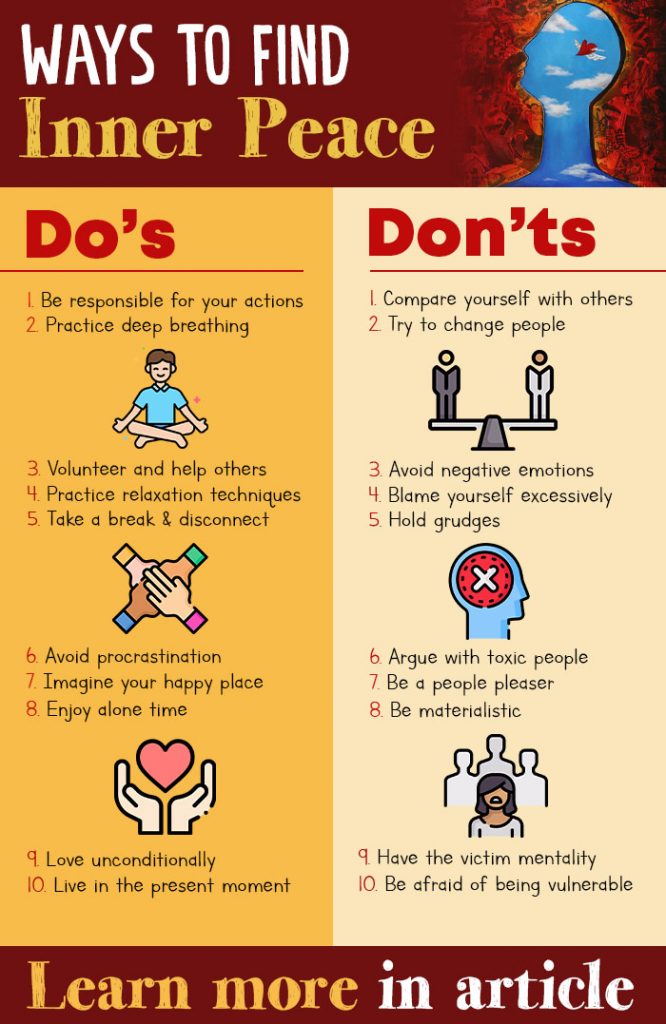
Apart from the above-mentioned steps of attaining peace of mind, there are certain dos and don’ts that you also need to be aware of. Let’s take a look.
A. Things to do
- Learn to be accountable and responsible for your behavior
- If you feel overwhelmed, pause and visualize your happy place
- Practice deep breathing often
- Be Assertive, not passive or submissive
- Volunteer and help others in need
- Try to be early even if just by 10 minutes
- Communicate and ask questions openly instead of assuming or guessing
- Instead of procrastinating, address issues that are affecting you
- Practice relaxation techniques like yoga, tai chi, massage, etc
- Deliberately reflect on thoughts that help you experience inner peace
- Take a break, disconnect, and escape your routine by going on a vacation
- Tackle one issue at a time instead of trying to multitask
- Learn to enjoy alone time and solitude
- In relationships, choose to love unconditionally
- Set small, attainable goals and celebrate every victory
- Live in the present moment
- Openly express your needs & desires
- Laugh with loved ones and don’t take life too seriously all the time
- Do things that you enjoy
- Prioritize peace over accomplishments
B. Things to avoid
- Stop comparing yourself with others
- Don’t try to change or “fix” people
- Don’t avoid difficult or negative emotions. Allow them to pass naturally
- Avoid arguing with toxic people
- Avoid blaming or criticizing yourself excessively
- Don’t hold grudges or resentment
- Avoid judging people by their immediate actions
- Don’t fall into the trap of the victim mentality
- Stop chasing happiness or believing that you can be happy once you accomplish a particular goal
- Stop being a perfectionist and appreciate imperfections
- Don’t be a people pleaser
- Don’t hold yourself back by staying in your comfort zone too long
- Avoid negative self-talk
- Stop being overly materialistic as it can never lead to inner peace
- Don’t be afraid of revealing your weaknesses and vulnerabilities
Related: 8 Types Of Negative Thinking That Can Destroy Your Peace Of Mind
Why peace of mind is important
Inner peace is crucial for our physical, mental, emotional, and spiritual well-being and is associated with self-actualization. It helps us manage our fears, worries, stress, and anxieties. In the absence of this inner calmness, we can experience fatigue, aches, sleep disturbances, stomach distress, lack of focus, irritability, and relationship issues. But when you can find happiness, balance, harmony, and peace within yourself, you can –
- Function better in your daily life
- Be better equipped to face life’s challenges
- Regulate your emotions better and have higher energy levels
- Be more empathetic, kind, and compassionate
- Be more positive and be less affected by negative interactions or drama
- Make better decisions in stressful situations
- Get quality sleep every night
- Appreciate the little things and moments in life
- Be more patient and mindful and stop hurrying all the time
- Avoid bad habits, like consuming substances or alcohol
- Better cope with changes and uncertainties
- Experience better physical and mental health
- Build healthier relationships & friendships
- Be more confident and have higher self-esteem
Inner peace is possible for everyone
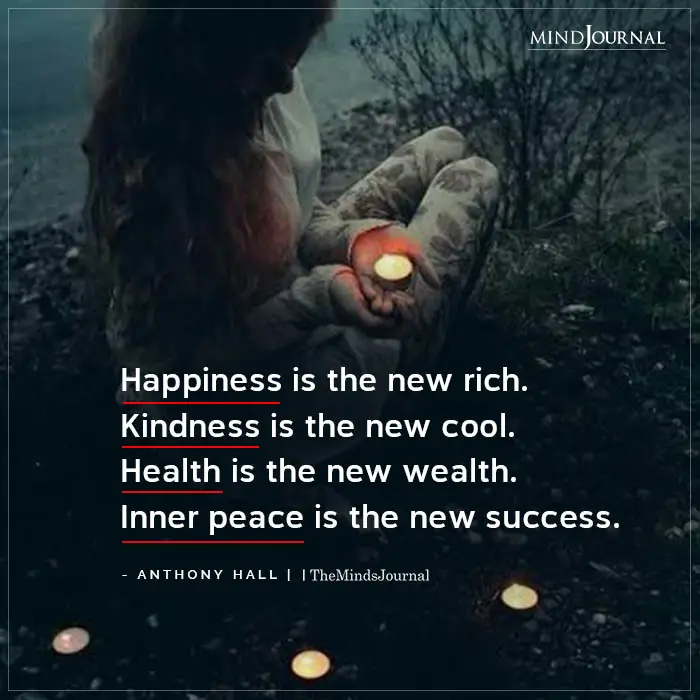
How can you find inner peace? We are all capable of experiencing inner tranquility or peace of mind.
So, how to find inner peace? When you are intentional about your thoughts and behaviors and take the right steps, you can cultivate peace of mind. However, it may take some time and effort. Practicing self-love and self-compassion can make your journey toward peace smoother and meaningful.
Related: 5 Inspiring Moral Stories For Adults
Frequently Asked Questions (FAQs):
What does inner peace feel like?
Inner peace is acceptance of self, freedom from fear, and letting go of negative emotions. It is a state of mental, emotional, and spiritual calm despite the presence of stressors. You don’t feel bothered by things, you feel happy and blissful, you love yourself & others and wish to be in nature.
What gives inner peace?
Inner peace can be achieved in several ways, but the simplest way is to pause and breathe. Bring your attention to the present moment and breathe intentionally from your belly. Simply focus on inhaling and exhaling for 2 minutes and you will become calm mentally and physically.
How do Buddhists achieve inner peace?
Buddhists attain inner peace by detaching themselves from attachments, wants, and desires and by accepting the fact that pain is a part of life, but suffering is optional. Meditation is a crucial practice in Buddhism for achieving peace of mind.
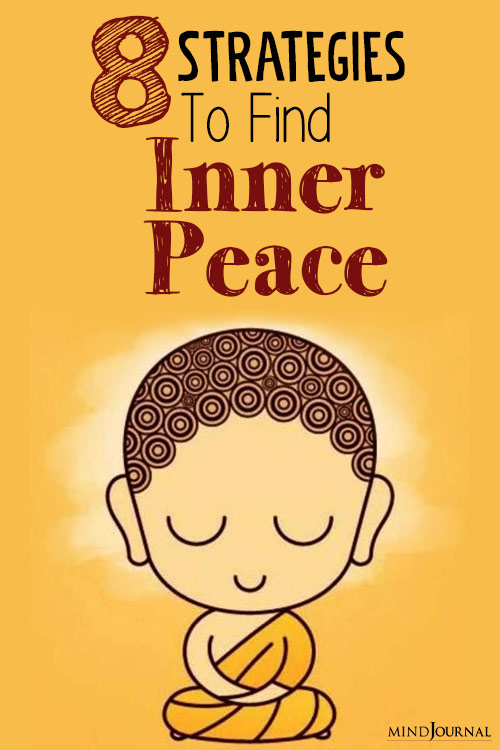
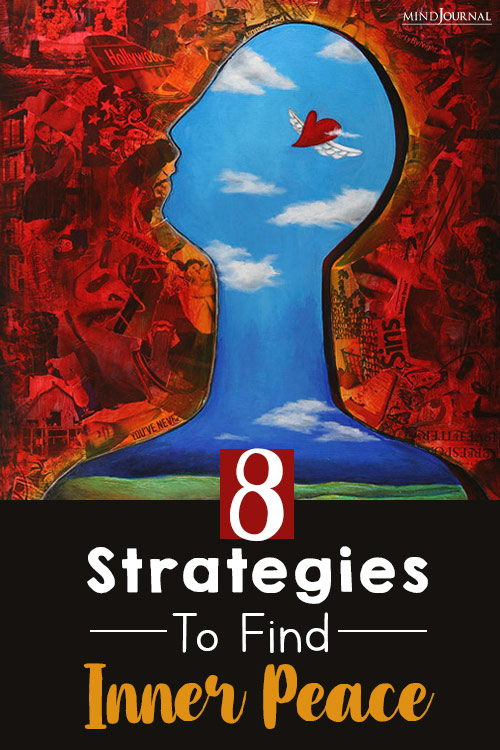
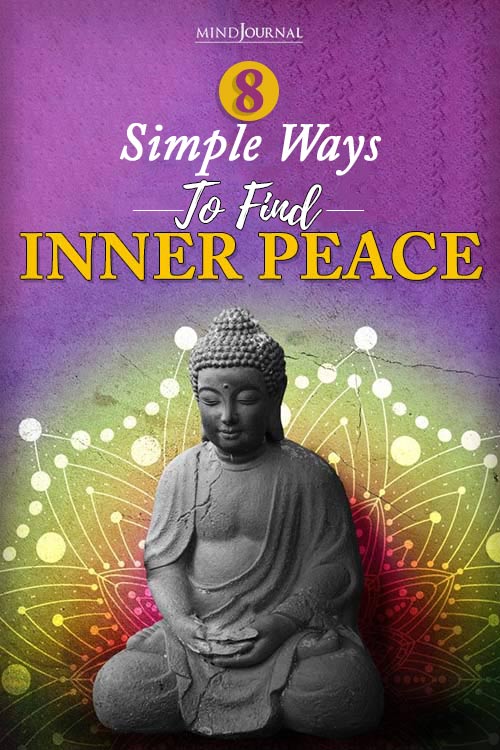
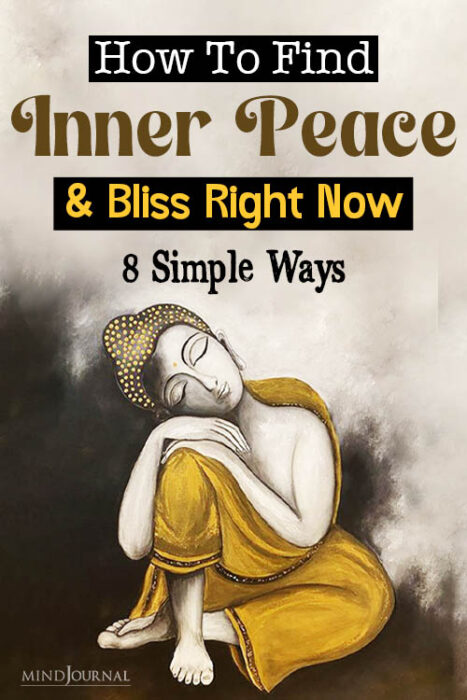
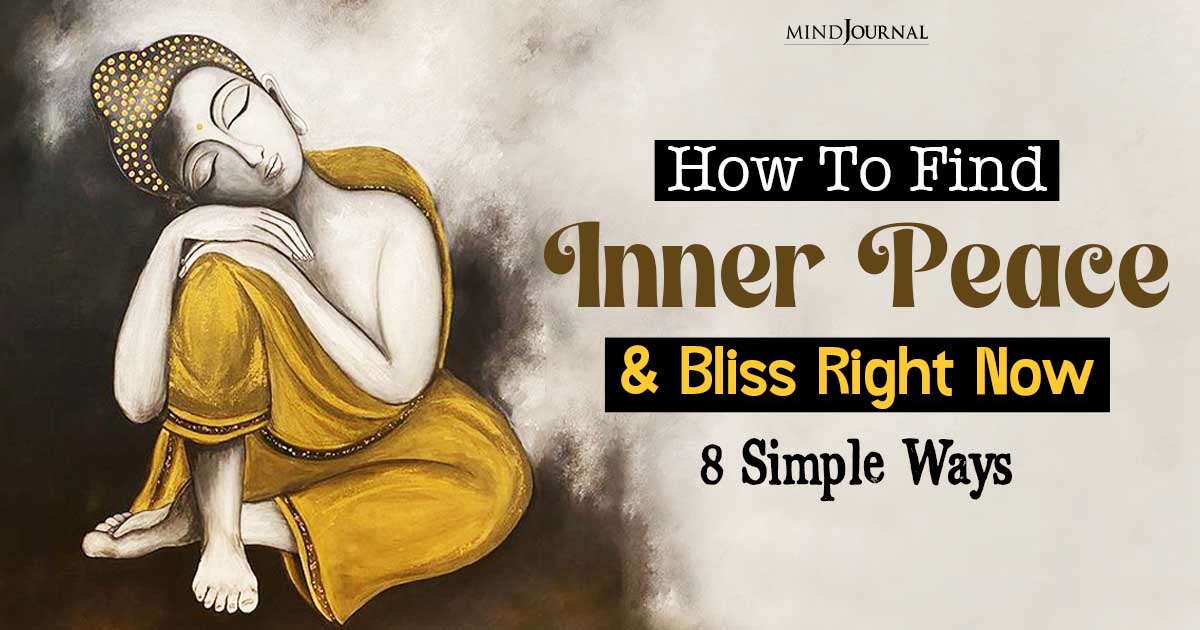







Leave a Reply
You must be logged in to post a comment.